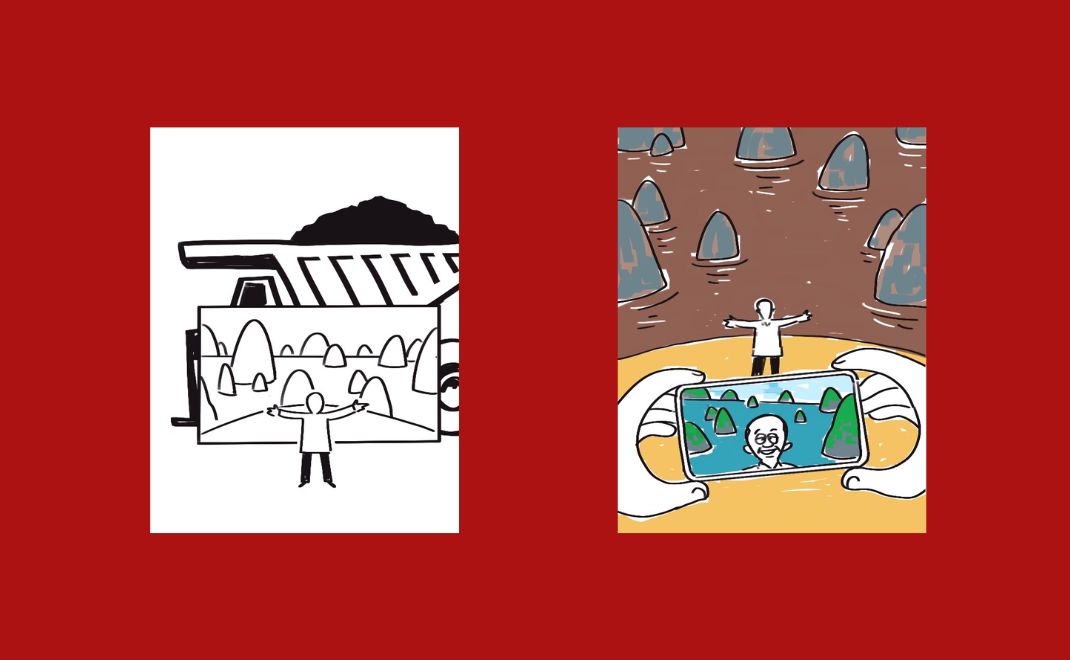Extractive industries are pushing us towards the resource curse. " Degrowth " to prevent destructive development.
IN the film The Prestige (2006), director Christopher Nolan created a scene that Slavoj Žižek uses as a metaphor for how capitalism works in his recent book, Against Progress .
Then, on stage, a magician makes a bird disappear from its cage. A little boy who was watching cried when he saw the scene. The little boy was sure that the bird disappeared because it was killed. The magician then comforted him that it was just a trick because he hid the bird in his coat, it was still alive and could fly.
When the camera pans backstage, the little boy is right. On the floor, unseen by the magic audience, are birds with their necks squeezed by iron cages, under a hollow table on stage. Slovenian philosopher Žižek uses the scene to illustrate the destructive economy: there are always birds crushed to death behind the various tricks of
In Indonesia, the crushed birds are the forests and indigenous peoples of Kalimantan, Sumatra, Southeast Sulawesi who are being marginalized; the small islands in Maluku who are losing their leaves; and now the exotic islands of Raja Ampat in Southwest Papua. The government is boosting investment and foreign exchange earnings by exploiting nickel reserves , the new prima donna of natural resources, raw materials for electric vehicle batteries.
Raja Ampat is often called the "last paradise on earth" because of its beauty and richness of natural resources. The islands in the bird's head of Papua are a habitat for various living creatures in the air, land, and sea. It is also a place of local wisdom of indigenous people who treat the surrounding nature as a mother.
Now that paradise is being destroyed by corruption and greed. There is no legal justification for issuing mining permits in Raja Ampat. The Law on Coastal Area and Small Islands Management prohibits mineral mining on small islands because it will damage their ecosystem. The definition of a small island in this law is an island with an area of less than 2,000 square kilometers.
In Raja Ampat, out of 1,500 islands, only Waigeo and Misool Islands are slightly larger than the definition of a small island. So President Prabowo Subianto's decision not to revoke the permit of a subsidiary of PT Aneka Tambang Tbk (Persero) on Gag Island is an open violation of the constitution.
Raja Ampat nickel mining is not new. Extraction has been going on for a long time with permits issued to 16 companies. Eleven concessions are in the UNESCO geopark area, which should be protected to preserve its biodiversity. Now, after the mining went viral for destroying the beautiful islands of Raja Ampat, Prabowo has revoked the permits of four companies that are still active.
Prabowo's decision may seem heroic, but it does not eliminate destructive policies towards natural resources. He, as he promised in his presidential campaign, made "downstream" natural resources, including nickel, the mainstay of reviving the economy. So, after Raja Ampat, our officials may again pretend to be surprised and deny having granted exploitation permits.
They are good at hiding in the haze. Feeling neat in hiding violations or crimes when we see them clearly. Minister of Energy and Mineral Resources Bahlil Lahadalia , for example, denied issuing a nickel mining permit in Raja Ampat. Even though he issued the permit when he served as Minister of Investment and Head of the Land Use and Investment Arrangement Task Force .
With such extractive development, we are pursuing Richard Auty's natural resource curse thesis. In his 1993 book, Sustaining Development in Mineral Economies: The Resource Curse Thesis , the Lancaster University, UK economist, points out the failure of African countries to manage natural resources for prosperity.
Therefore, Slavoj Žižek recommends that we stop the development of the Industrial Revolution that gave birth to capitalism. If technological progress produces a climate crisis, he says, there is something wrong with the concept. Žižek advocates “ degrowth ”, even “denaturalization”, to prevent destructive progress.
In his inaugural speech as professor of social philosophy at the State University of Jakarta on June 12, 2025, Robertus Robet suggested a new path of “ ecocipation ” or ecological emancipation. The basic idea is similar to Žižek's. He offered four ways: stopping the extraction of natural resources, shifting elitist growth to meet basic needs, redistribution and social justice through public services that are not subject to market logic, and a community-based economy.
These new ways are not entirely new. In 1973, we heard Fritz Schumacher's fatwa in his romantic book, Small Is Beautiful , about intermediate technology, living in harmony with nature, decentralized. From the very first page, the German economist nicknamed neo-Gandhi struck with this sentence: even if we can conquer nature with technology, we will still lose . We will be the birds that are squashed. ●

Posting Komentar